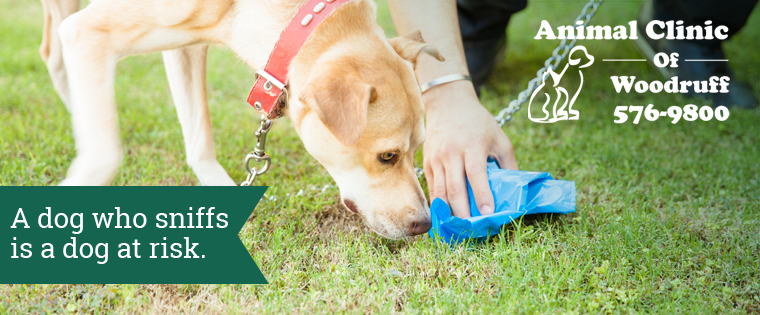Canine parvovirus (CPV), also known as parvo, is a highly contagious and dangerous virus in dogs. It expresses itself in one of two forms. The more common form affects the stomach and digestive system, causing extreme intestinal distress. Infected dogs will vomit, have diarrhea, lose weight and likely stop eating. The second, less common form causes heart problems, especially in young puppies, and can be fatal.
Are all dogs at risk for CPV?
Canine parvovirus is spread by an infected dog’s feces; another dog who sniffs the poop or even comes in contact with the ground around it, or in contact with poop tracked in by others, can contract the disease. Rain, wind, and cleaning products do not kill this virus (with the exception of strong bleach), so the virus can live in soil for a long time. So even if your dog is healthy, he may be exposed to parvovirus at any time, meaning every dog is at risk.
Does my dog need the parvo vaccine?
Parvo makes dogs seriously ill and can even be fatal. The only way to keep your dog safe from parvovirus is a regular vaccination protocol. And since puppies are at higher risk from the disease, it’s even more important to vaccinate dogs at a young age. Learn the schedule for puppy parvo vaccines here.
Do I need to see a vet for parvo?
CPV causes severe intestinal distress, so it’s important to see a vet right away if your dog has bloody stools, severe diarrhea or other signs of stomach problems. Your vet will run a series of tests to properly diagnose parvovirus. Though CPV is a virus and thus can’t be cured, a sick dog will likely need hospitalization to prevent dehydration and to fight secondary infections. Dogs who are properly cared for have a good chance of survival.
If you have questions about parvo or any other vaccines, or if you’re concerned about your dog’s health, please schedule an appointment with our veterinarians in Woodruff today.













